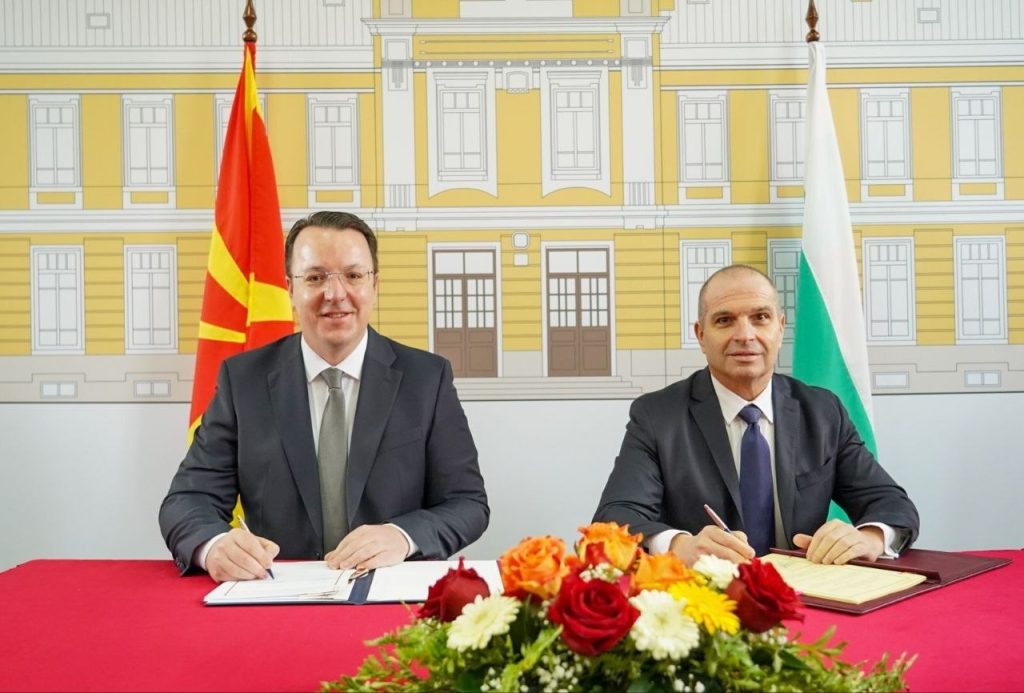
In a TV interview, Deputy Prime Minister and Transportation Minister Aleksandar Nikoloski said that the agreement concluded with Bulgaria for construction of the Corridor 8 railway was essentially more of an engineering than a political problem. Nikoloski discussed the importance of the railroad line for both counties but for Europe and NATO as well, and praised his Bulgarian counterpart Grozdan Karadzov for helping make the project move forward.
The intention of certain forces in Bulgaria was to turn an engineering issue into a political issue, but they failed, and now we have a concrete and solid agreement for the construction of the joint tunnel of the railway, and the guarantors for that are the European Union and the United States. It was not easy for Karadzov and he should be given credit for his work, because serious political structures in Bulgarian political life were against this. I don’t think they even know what the project is, but they are against the normalization of relations between Macedonia and Bulgaria, said Nikoloski.
The Deputy Prime Minister also emphasized that the French government and their Minister of Transport and Communications played an important role in concluding the agreement between Macedonia and Bulgaria. “I think the Minister understood that it was an engineering problem, not a political one, and that politics should be removed from it. And the recommendation was to discuss only topics related to the functionality of the project”, Nikoloski added.
I presented the project that Macedonian Railways Infrastructure has developed for the entire tunnel. They reviewed it and accepted it after a few days. They said that it was excellently done. I took on the obligation to accelerate work on the second part of the railway section. That is the section that goes from Beljakovce to Kriva Palanka. We opened the Beljakovce-Kumanovo section. Two more tunnels remain out of a total of 16 that will be on that route, and there is an obligation to tender the third part from Kriva Palanka to the border, that is, to the tunnel, Nikoloski explained.
He stressed the importance of the project for NATO and the United States, which have marked this corridor as strategic and security in this region.
This corridor will be a way to supply Ukraine, taking into account that from Burgas to Odessa is a very short boat trip, and the rest is rail and cheap transportation that would be used in the reconstruction of Ukraine or, if the war continues, in further activities for the defense of Ukraine. So the participation of the United States is also very important, Nikoloski said.
The financial structure of the project is over 1.4 billion euros. Of this, about 200 million euros are non-refundable grant funds, while the rest will be provided through loans from the European Investment Bank, the European Bank for Reconstruction and Development and other European sources. Bulgaria, on the other hand, will invest 1.2 billion euros – the largest part for the reconstruction of the Sofia-Radomir-Pernik-Kyustendil-Gjueshevo railway line and for the construction of the section to the border with Macedonia, as well as for the joint construction of the tunnel between the two countries.
The Deputy Prime Minister also spoke about other infrastructure projects that he agreed with the Bulgarian Deputy Prime Minister Karadzov, and that will begin to be implemented soon.
What is also important is that we agreed with Karadzov on two more things. First, that they will start building an expressway and a highway to the Deve Bair border crossing. And secondly, you know that Macedonia has an excellent geostrategic position, where two pan-European corridors, 8 and 10, intersect, and the Struma Corridor passes through Bulgaria, we have agreed to connect Corridor 10 and the Struma Corridor, said Nikoloski.
He added that this project would mean connecting with an expressway through Smokvica-Valandovo and Strumica and Novo Selo, and it would be financed with funds from cheap loans and grants, for which there is already interest from the European Union and the European Investment Bank.


 English
English